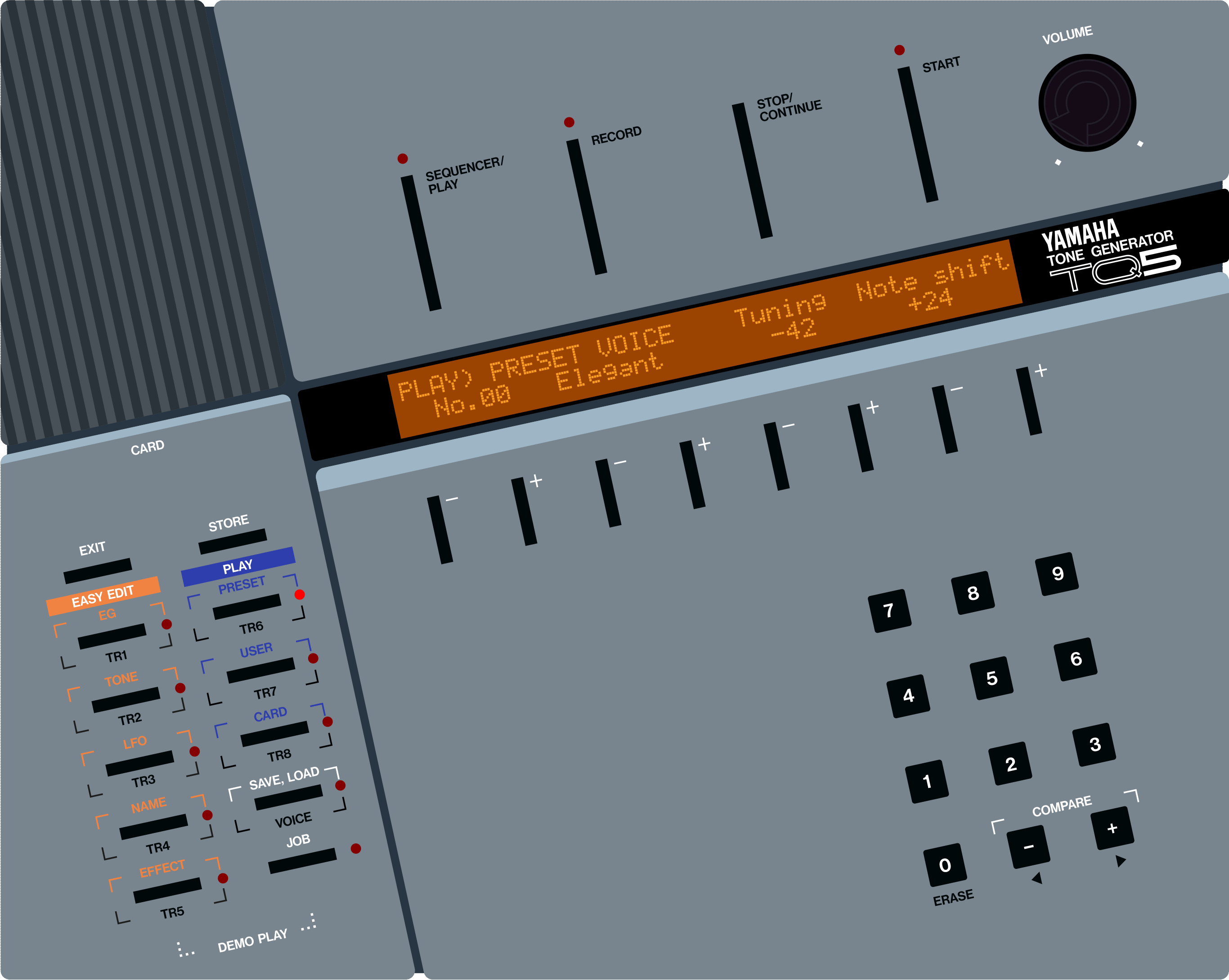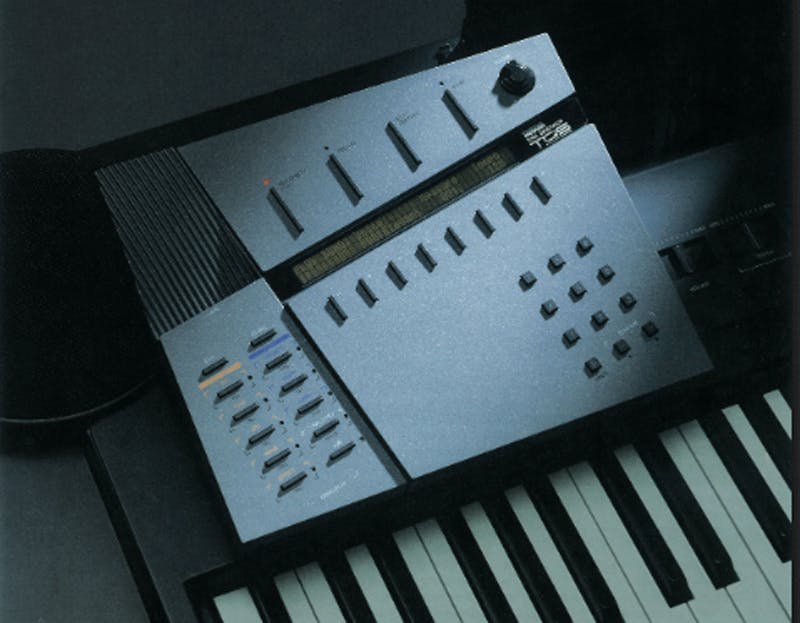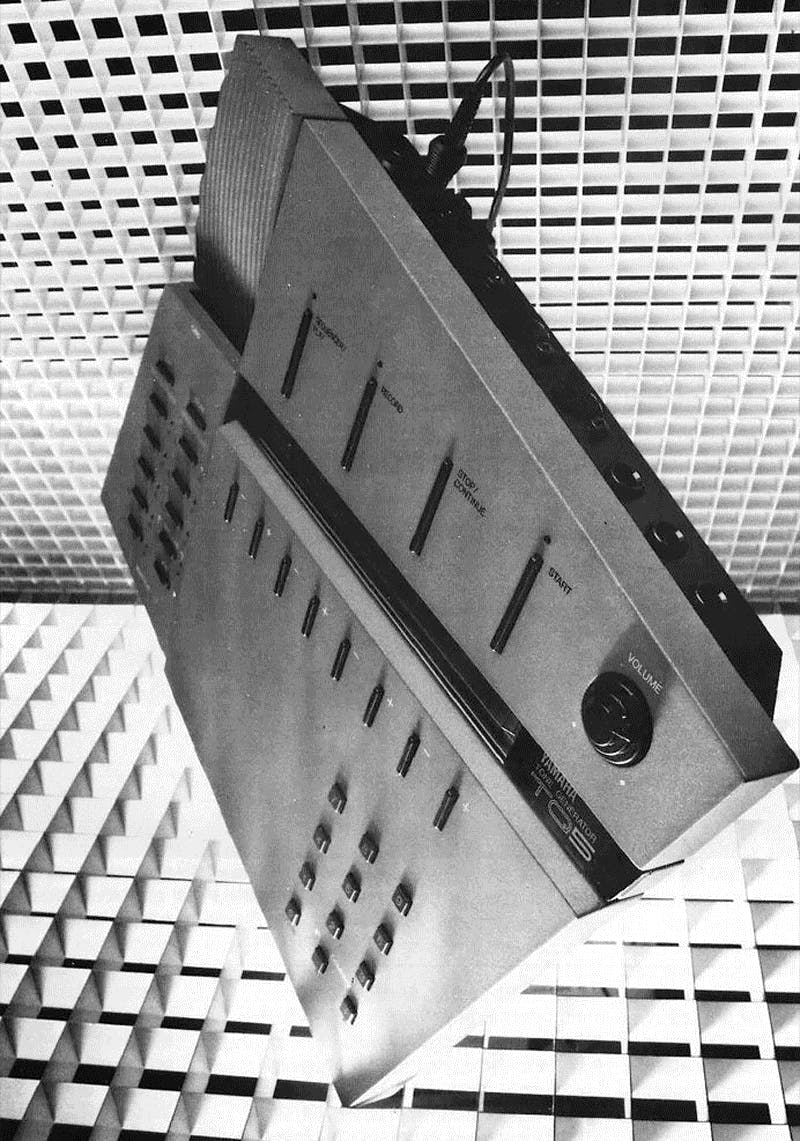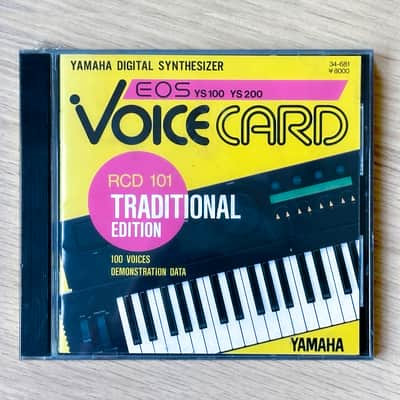1988 (Dec.)
Initially sold for ¥60,000
The Yamaha TQ5 tone generator is a 4op FM synthesizer with 8 voices, 8 notes polyphony and the usual 8 algorithms. It belongs to the same family of the Yamaha DX11 and TX81Z but it also adds ten built-in effects including reverb, delay and distortion, sharing a lot with the V50 and EOS B200. The unit also includes a 8-track sequencer, which makes it a great all-in-one machine in a rather small package.
The TQ5 has 100 presets, plus another 100 patches in RAM and an optional RAM card containing an additional 100 slots. The built-in sequencer is capable of storing 999 bars of music (about 10,000 notes) that can be recorded in real time or step time from a master keyboard. It also has a function of dubious utility which shows the current time, date and day of the week after a minute of inactivity. It does however expand on the "easy edit" functionality first introduced with the TX81Z and DX11, letting you modify FM parameters with an analog-like approach.
The TQ5 sits in the middle of Yamaha's departure from the DX era: on one side it still retains full compatibility with the classic 4op FM technology while adding bits and pieces to make it sound better and easier to program, but on the other side it's a hard break with the hardware design and interface paradigms that made Yamaha famous during the 1980s.
Supposedly, the slanted design of the control panel should make it easy to operate when placed on the left side of the controlling keyboard. Yamaha suggest having it on top of a PF1500 electronic piano, which is probably the only place it was designed for, considering that every synthesizer made by Yamaha till 1988 had sliders on the left side of the top panel. It won't even fit on a KX76 MIDI keyboard which should be a better companion than an electronic piano.
Although no further information could be found, the TQ5 has apparently been designed (together with the YS200) by the German design firm Frog, which was also responsible of Apple's successful design language of the late 1980s but probably never really understood how a synthesizer works.
At least for this website, the TQ5 marks the end of the "black boxes" era.






